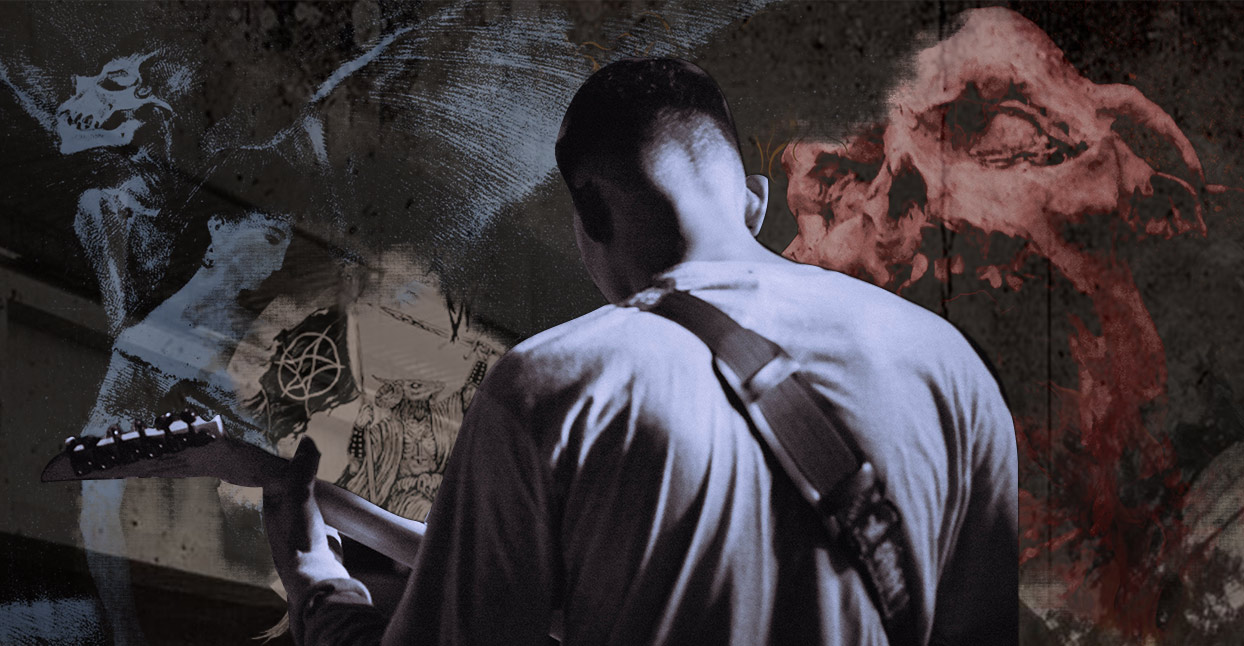
Nearly 50 years (!) into its existence, metal has spread to almost every corner of the globe, with unique takes on generic conventions emerging from every corner. One such country with a rich metal history is Mexico, which has a particularly active black metal scene. Like many nascent metal scenes, it all started with tape trading: bands and fans eagerly consuming early demos of ‘80s bands like Frightful Cross, as well as ‘90s groups Avzhia, Ereshkigal, and Sargatanas. These days, most Mexican black metal bands hail from the north of the country, particularly Monterrey: “It’s colder there, so better for black metal,” jokes Pedro “Necros” Fratti, head of Detonation Distro and a walking encyclopedia of the Mexican scene.
From Evilheart in the deserts of the north to Hurakán in the southeast, Mexico’s black metal scene is wide-ranging. Remarkably, many of the old bands that started in the ‘80s and ‘90s, such as Black Torment, Buzrael, and Wintermoon, are still going strong, and there’s never been a dip in quality or quantity (as demonstrated by stellar ‘00s bands like Septrion and Black Hate). Mexico City and the aforementioned Monterrey, where titans like Black Empire and Buzrael cut their teeth, are the main hubs of activity. What’s more, new bands continue to keep bursting forth.
Here’s a small taste of what Mexico’s fertile black metal scene has to offer.
Warfield


Based in Mexico City, the members of Warfield boast long histories in other bands around the extreme metal field, but their debut, 2009’s Conquering the Black Horde, fully established them as a force in their own right. Their most recent album, 2016’s Hosco, showcases their brutal and punishing sound. The drumming is creative, such as on the thrashy opening for “Ascension” or the D-beat-driven “Panteónica,” and pairs well with noisy yet melodic riffs that sound as though they might have been recorded in the middle of a storm. The mix is well-balanced for the style of music—rough around the edges, but one is still able to clearly pick out what’s going on. It’s a step up in speed from the crawling Trivmvirat EP that preceded it, and much more interesting for it.
Just like in his time in previous acts, vocalist and guitarist Polo Hellfire is front and center. His vocals are textbook mid-level snarls that conjure the Scandinavian greats, delivering litanies to Satan and other dark texts. For a similar style, Alfa Eridano Akhernar also scratches that black/death itch.
Astral Rebirth
The ambient/depressive style of black metal has become ubiquitous in recent years, and Mexico is no exception. One of the better records to emerge comes courtesy of little-known duo Astral Rebirth, whose style gives nods to Xasthur and Paysage d’Hiver while still being clearly their own.
Surrendered to the Black Immensity, Astral Rebirth’s sole full-length, adds waves of dissonance and ambiance to hypnotic riffs. But there are plenty of subtle and unique characteristics that help the album stand apart from its contemporaries, such as the mournful guitar melodies on “In Eternal Black Shattered Illusions” that surface amid the molten riffage of the half-way mark. The record feels like a journey across open seas—something reflected in the artwork—as it moves logically through each lengthy track. The instrumental half of the duo, elusively named Oblivion, excels in maintaining a thread of familiarity despite varying the songwriting across the album’s hour. Meanwhile, his partner Aneurysm delivers impenetrable and murky vocals that sound as though, continuing with the nautical theme, they were recorded underwater.
Since Surrendered to the Black Immensity was released back in 2012, the band have disappeared from social media, but they leave this first-class album (and two previous releases) as their legacy.
Repvblika


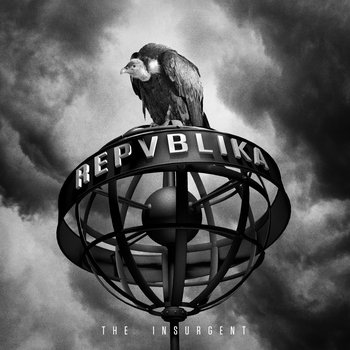

Compact Disc (CD)


While many bands in black metal stay firmly rooted within the genre’s original dimensions, Repvblika advance onwards into more interesting territory. Theirs is a modern take, full of belligerence. Their second album, The Insurgent, is a defiant statement that sees the band firing on all cylinders, whether at a mid-paced march or barreling through blast beats.
Most prominent on the record is Lugubrem’s charismatic and audacious vocal delivery. The lyrics themselves are driven by revolutionary political ideology that also mixes in hedonism and fatalism to captivating effect. On the instrumental side, there’s a satisfying amount of diversity: incessant groove on “WWV (World Wide Void),” needling guitar work on finale “Hyenas, Jackals, Vultures…”, and a ‘70s punk flavor to main single “The Black Condor of Death.” Elsewhere, the saxophone solo on “Destrvktivism” (courtesy of Shining’s Jørgen Munkeby) comes unexpectedly, yet somehow fits among the cacophony. The whole production is relentless, aided in part by Mick Kenney’s (Anaal Nathrakh) touch at the mixing desk. Perhaps it’s no coincidence, then that Repvblika takee a bit of influence from Kenney’s group, particularly on the speedy “Snuff Democracy,” which is one of the more blistering tracks on the record.
The Insurgent ultimately delivers on its intentions and cements Repvblika’s place as one of the most interesting black metal bands to have emerged from Mexico in the last few years.
Phendrana

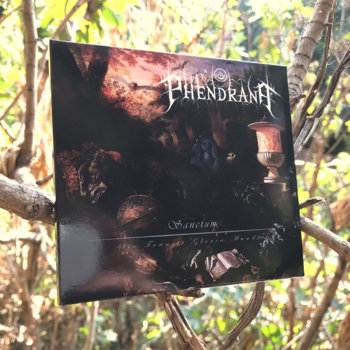



Compact Disc (CD), T-Shirt/Shirt



Down the progressive black metal line of thinking, 20-year-old Jorge Anuar Salum’s one-man project Phendrana is a recent highlight. The project was originally called Pakistuf, and was formed in memory of Salum’s grandfather, whose poetry formed the basis of some of his descendant’s lyrics. That project has since evolved considerably; Phendrana is an altogether upgraded beast, both in the songwriting and production, and its debut, Sanctum: Sic Transit Gloria Mundi, is a masterclass in atmosphere from the self-taught multi-instrumentalist.
One-man black metal projects tend to focus intently on one instrument, but here, every element is well-balanced: the subtle technical noodling à la Opeth; the confident guest vocals of Vera Clinco (Locus Animæ); the gorgeous piano and acoustic work; the Agalloch-esque drumming. Also like Agalloch, Phendrana is driven by a love of nature and hatred of religion, and the lyrics reflect these topics in poetic fashion. Final track “Gjenganger” is a highlight, drawing from Scandinavian folklore as Salum screams “Inclement soul, you shall roam your weariness/You shall taste rebirth from the cup of despair,” while guest vocalist AraCoelium (The Genetist) wails operatically. It’s a potent ending to a varied record that shows that black metal’s newest generation has lots to offer.
The Depressick





Compact Disc (CD)



One of the most common crossovers of black metal is with post-rock, the latter adding a sense of calm acceptance to the desolate misery of the former. A prime Mexican example of this are The Depressick, from Ciudad Nezahualcóyotl, a densely-populated and historically impoverished suburb of Mexico City with considerable stigma attached to it. As they note on their Bandcamp page, the “negativity, misery, poverty, sickness and filth” of their environment contributes to their music’s bleakness.
The Depressick are unafraid to wear their influences on their sleeves: the soft piano echoes Lifelover at their finest; the twinkling guitar work and power chords is akin to Amesoeurs; the frantic, desperate vocals are reminiscent of Psychonaut 4. However, their music has evolved a lot across their discography, from the beaten and straightforward path of flipping between raw depressive black metal and post-rock on their earlier releases to a more successful merging of the two—along with a more prominent shoegaze influence. Take their two latest releases, both from this year. On the EP Disposable 1.10, they stretch out over languishing post-rock melodies. Solo piano piece “Vacant Place,” which closes things out, finishes with a spoken-word piece expressing hope—a break from their otherwise gloomy outlook. Meanwhile, Split with Russian duo Falskur Fugl contains much more concise tracks, and even a strangely upbeat vibe on “CH3CH2OH” (so named for the chemical compound for ethanol), contrasted with a harsh film sample addressing alcoholism. The Depressick’s discography is well worth diving into for a dose of Mexican melancholy; similar groups to check out include Macuarro and Kill Yourself In Others.
Alpha Hydrae
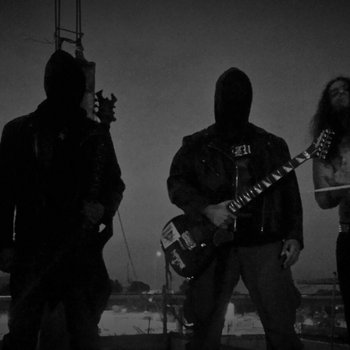
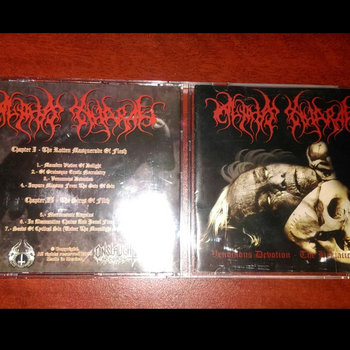
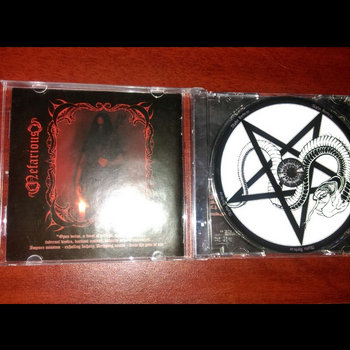
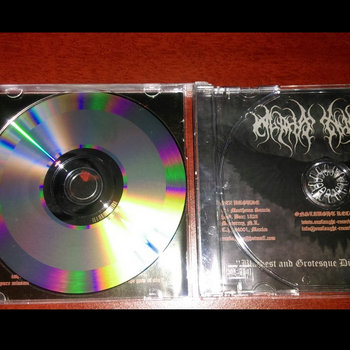

Compact Disc (CD)



Cranking speed up to 11 all the time is standard practice for black metal, but there’s more to the subgenre than caping for Satan at whiplash-inducing tempos. Alpha Hydrae (previously known as Opus Nocturne) fuse black and doom metal for an atmospheric experience on both their albums, drawing from the works of Milton, de Sade, and Lovecraft in their poetically grotesque lyrical content (“Impure miasma/ Exhaling lechery/ Dripping nectar from the gate of sin”).
Like many newer bands on the Mexican scene, Alpha Hydrae is the result of musicians who have already racked up experience in a host of other groups. As a result, the sound here arrives fully formed and polished—the melancholic keyboards and pristine clean guitars accent their heft, which draws from blackened trailblazers like Rotting Christ and Dimmu Borgir, doom institutions such as My Dying Bride, and parts of death metal à la Morbid Angel. Beyond that, the band pull out all the stops for an immersive listen, from Latin chants and obscure film samples to squealing guitar solos and stunning piano melodies.
Alpha Hydrae are an impressive project whose star is very much on the ascendant right now. Both albums cover a vast amount of ground and showcase a different side of black metal from the traditional Satan-baiting angle.








